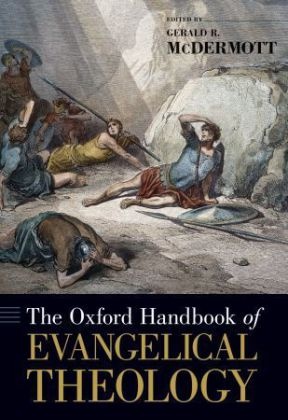Mehr lesen
Evangelical theology is a burgeoning field. Evangelicals have been growing in numbers and prominence worldwide, and the rise to academic prominence of evangelical historians, scripture scholars, ethicists, and theologians--many of whom have changed the face of their disciplines--has demonstrated the growing maturity of this movement's intellectual leaders. This volume surveys the state of the discipline on topics of greatest importance to evangelical theology. Each chapter has been written by a theologian or scholar who is widely recognized for his or her published work and is considered a leading thinker on that particular topic. The authors critically assess the state of the question, from both classical and evangelical traditions, and propose a future direction for evangelical thinking on the subject.
Inhaltsverzeichnis
- Contents
- Editor's Introduction
- A. Introduction
- What is "evangelical"? (Mark Noll, Notre Dame)
- B. The Bible and Theological Method
- Scripture and hermeneutics (Kevin Vanhoozer, Trinity Evangelical Divinity School)
- Faith and reason (Jay Wood, Wheaton College)
- Faith and experience (Oliver Crisp, University of Bristol)
- Faith and tradition (Alister McGrath, Oxford University)
- C. Theological foundations
- The Triune God (Robert Letham, Westminster Seminary)
- Creation (Loren Wilkinson, Regent College)
- Sin (Henri Blocher, Wheaton College Graduate School)
- Jesus Christ (John Stackhouse, Regent College)
- Holy Spirit (Craig Keener, Palmer Seminary)
- D. Theology of Salvation
- Israel and Salvation (Rikk Watts, Regent College)
- Gospel (Scot McKnight, North Park University)
- Conversion and redemption (Gordon Smith, reSource Leadership International)
- Justification and atonement (Donald Bloesch, Dubuque Seminary, emeritus)
- Discipleship (Dallas Willard, USC)
- Spiritual practices (Simon Chan, Trinity Theological College, Singapore)
- Eschatology (Trevor Hart, St. Andrews)
- E. Theology of Church
- Church and sacraments (Ephraim Radner, Wycliffe College, Toronto)
- Church and churches: ecumenism (William Abraham, Perkins School of Theology)
- Worship (John Witvliet, Calvin Institute of Christian Worship, Calvin College and Seminary)
- Spiritual gifts (Howard Snyder, Tyndale Seminary in Toronto)
- F. Theology of Mission
- Evangelism, revival and missions (Michael McClymond, St. Louis University)
- Other religions (Sung Wook Chung, Denver Seminary)
- G. Theological approaches to contemporary life
- The Bible and ethics (Darrell Bock, Dallas Theological Seminary; M. Daniel Carroll R., Denver Seminary)
- Politics (Eric Gregory, Princeton University)
- Economics (John Lunn, Hope College)
- The arts (Roger Lundin, Wheaton College)
- Science (Alister McGrath, University of London)
- Sexuality (Robert Gagnon, Pittsburgh Theological Seminary)
- Race (Timothy Tseng, Institute for the Study of Asian-American Christianity)
- The Vulnerable-Abortion and Disability (Ben Mitchell, Trinity International University)
- Gender (Cherith Fee Nordling, Calvin College)
Über den Autor / die Autorin
Gerald McDermott is Jordan-Trexler Professor of Religion, Roanoke College.
Zusammenfassung
Evangelical theology is a burgeoning field. Evangelicals have been growing in numbers and prominence worldwide, and the rise to academic prominence of evangelical historians, scripture scholars, ethicists, and theologians--many of whom have changed the face of their disciplines--has demonstrated the growing maturity of this movement's intellectual leaders. This volume surveys the state of the discipline on topics of greatest importance to evangelical theology. Each chapter has been written by a theologian or scholar who is widely recognized for his or her published work and is considered a leading thinker on that particular topic. The authors critically assess the state of the question, from both classical and evangelical traditions, and propose a future direction for evangelical thinking on the subject.
Zusatztext
it represents the very best of evangelical theological reflection, which is not only methodologically tuned, systematically coherent, and soteriologically motivated ... but is also ecclesially sensitive, missionally minded, and practical.
Bericht
it represents the very best of evangelical theological reflection, which is not only methodologically tuned, systematically coherent, and soteriologically motivated ... but is also ecclesially sensitive, missionally minded, and practical. Jason S. Sexton, Journal of Theological Studies

